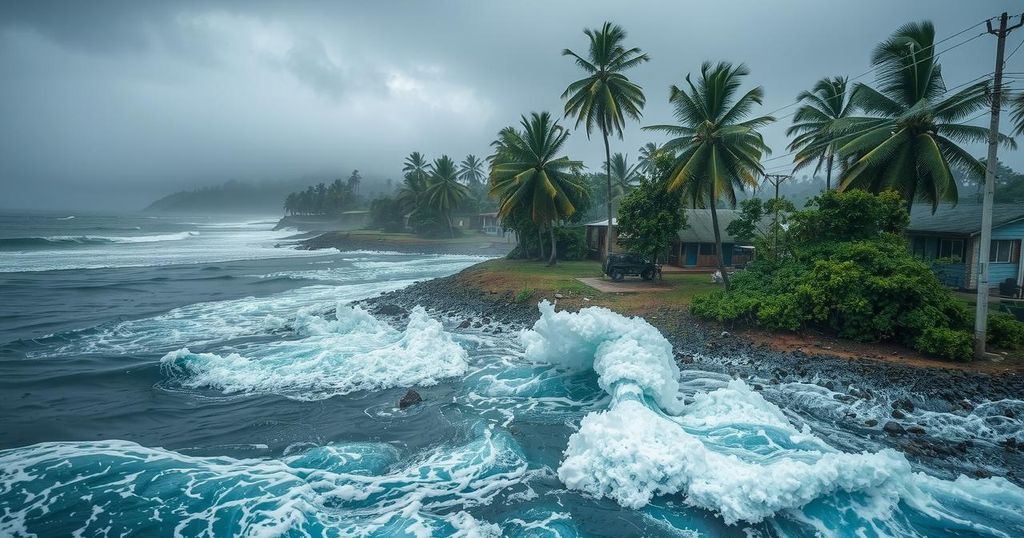Tropical Storm Dikeledi Strikes Northern Mozambique, Fatalities Reported in Madagascar
Tropical Storm Dikeledi struck northern Mozambique, following its impact in Madagascar where three fatalities were reported. The storm brought heavy rainfall and winds, prompting emergency warnings in Mozambique. President Filipe Nyusi urged residents to seek shelter, as predictions indicate continued severe weather. This cyclone season has been intensified by rising ocean temperatures linked to global warming.
Tropical Storm Dikeledi made landfall in northern Mozambique on Monday, intensifying as it approached the coastal region of Nampula, resulting in heavy winds and rainfall. Prior to reaching Mozambique, the storm caused the deaths of at least three individuals in Madagascar and contributed to flooding in Mayotte. The French meteorological agency, Meteo-France, reported that the storm is expected to bring rainfall amounts of up to 200 millimeters (approximately eight inches) within just 24 hours, along with wind gusts reaching 180 kilometers (110 miles) per hour.
In response to the imminent threat, Mozambique’s President Filipe Nyusi urged affected residents to seek shelter and prepare essential supplies. During a parliamentary session in the capital city of Maputo, he stated, “Go immediately to a safe shelter and stay there until the authorities give you further instructions.” As the storm progresses, it poses risks not only to Mozambique but could also impact Madagascar’s southwestern coast later in the week.
Historically, cyclones occur in the Indian Ocean between November and March, with this year witnessing elevated surface water temperatures near 30 degrees Celsius (86 degrees Fahrenheit). Such conditions exacerbate storm intensity, a trend attributed to global warming and observable in other regions, including the North Atlantic and the Pacific. This severe weather pattern has raised concerns following the devastation caused by Cyclone Chido in December, which resulted in significant loss of life and damage in northern Mozambique.
Tropical storms and cyclones are common occurrences in the Indian Ocean, particularly during the cyclone season, which spans from November to March. These storms can greatly affect coastal regions, causing severe flooding, loss of life, and substantial destruction to infrastructure. This year’s conditions, characterized by warmer sea surface temperatures, have heightened the intensity of storms like Dikeledi, increasing the risk of destructive weather phenomena in affected areas. The alarming trend of climate change is also creating more conducive conditions for these storms.
In summary, Tropical Storm Dikeledi poses a serious threat to the coastal regions of Mozambique, following its earlier impact on Madagascar. With tragic fatalities already reported and destructive weather forecasted, immediate precautions are crucial to ensure public safety. Authorities are working to mitigate the storm’s impact through timely warnings and guidance for residents. These events underscore the ongoing challenges presented by increasing storm severity, likely exacerbated by climate change.
Original Source: www.barrons.com




Post Comment